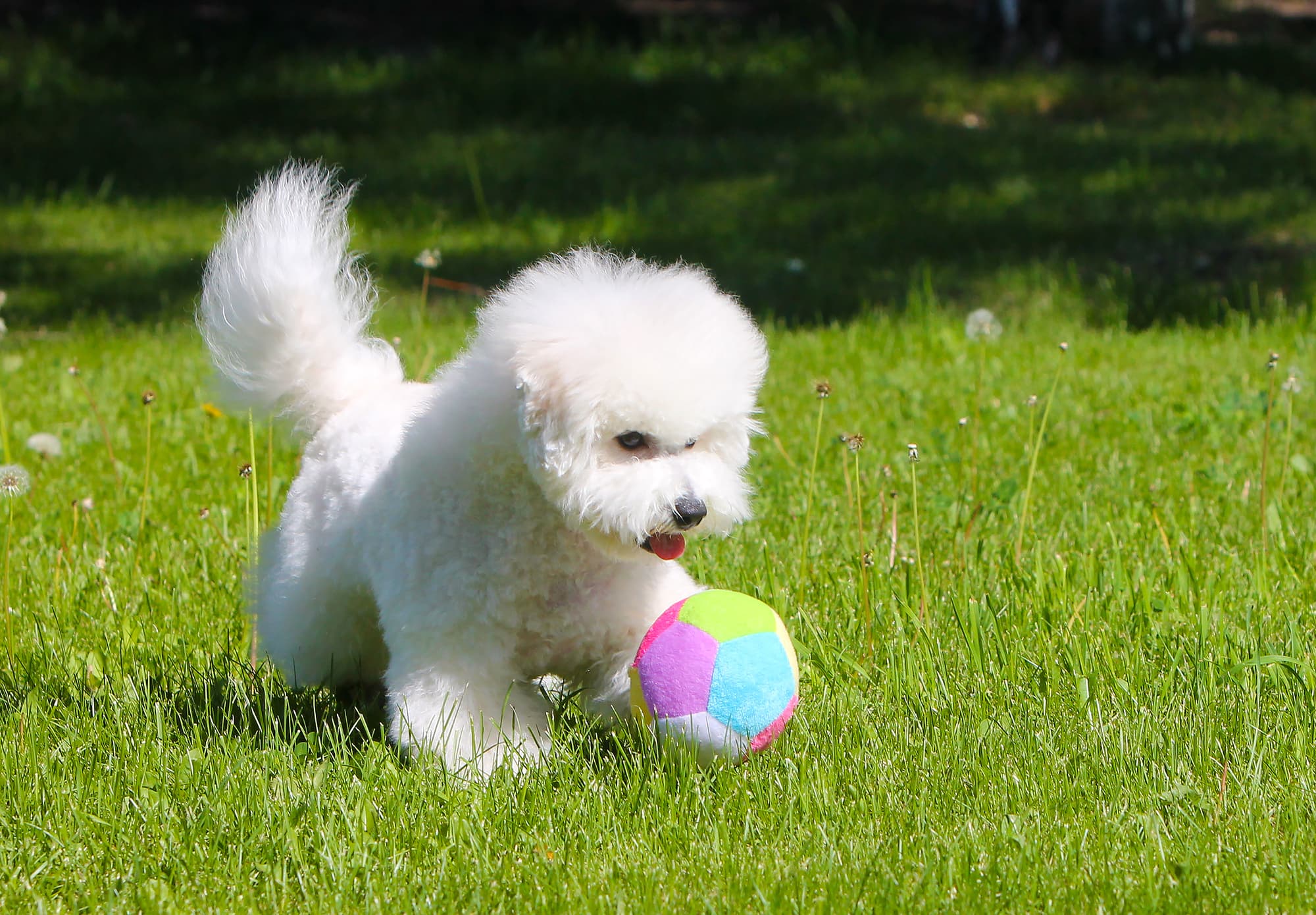The crowning glory of the Bichon is its velvety white coat while the black facial features make them look as though they’re smiling. This coat is predominantly white but can be a mixture of white and apricot, white and buff, or white and cream. The outer coat is silky and curly while the undercoat is soft. Without regular brushing, this undercoat will mat.
This breed definitely does have a happy-go-lucky personality. They view everyone as their friend, meaning they’re not the best guard dogs in the world. There’s nothing they like better than a petting or play session followed by a long snooze on the sofa. They like to intersperse these activities with a gentle walk or two. Occasionally, your Bichon Frise may have a fit of the zoomies when they chase around the yard or house. While puppies can be tricky to toilet-train, the Bichon is an intelligent dog that’s easy to train. It picks up new tricks with impressive speed. Many owners take them to agility classes and competitions, something these curious, intelligent, and sociable pets thoroughly enjoy.
Bichon Frises are incredibly smart and take well to learning new tricks. However, their greatest gift may be their emotional intelligence—they’re experts at “reading the room” and knowing exactly who needs some snuggles the most.
The Bichon needs frequent brushing and bathing while regular clipping at the dog groomer must be factored into your budget. As long as you can cope with their grooming needs, a Bichon Frise is the ideal choice if you’re a first-time dog owner.


















